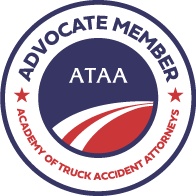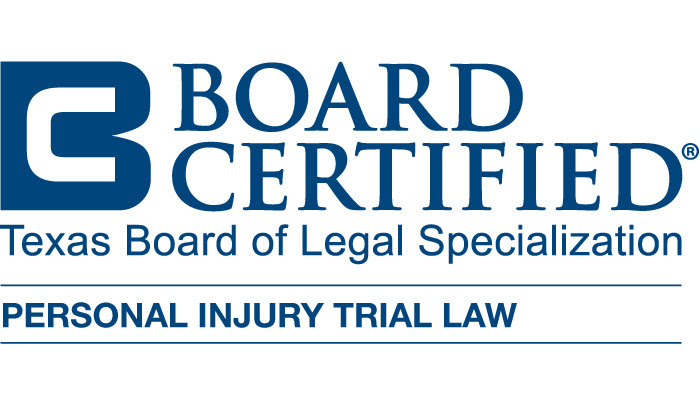When a rideshare accident happens in Texas, it can leave those involved feeling overwhelmed and unsure of what to do next. The immediate concern is often ensuring the safety and well-being of everyone involved, but after the dust settles, understanding how to protect your rights becomes essential. One of the most significant pieces of evidence in any rideshare accident case is the police report. These documents can provide valuable details about the incident and play a crucial role in determining responsibility and helping with legal claims. Knowing how police reports are used in Texas rideshare accident cases can help you navigate the legal process and better understand how to protect your interests. At, Willumsen Law Firm, P.C.,we are here to guide you through the legal process and help you navigate the complexities of your case.


What is a Police Report and Why is it Important?
A police report is a document prepared by law enforcement officers who respond to the scene of an accident. This report includes vital information about the incident, such as the time, date, and location of the crash. It may also include statements from drivers, passengers, and witnesses, as well as the officer’s observations about what may have caused the collision. In rideshare accidents, where multiple parties and complex insurance policies may be involved, a police report can serve as a reliable source of information. It helps establish the facts of the case and can be used as evidence in negotiations with insurance companies or in court.
Having a police report can make a difference in proving your version of events. The details included in the report can help clarify who was at fault and whether factors such as speeding, distracted driving, or weather conditions contributed to the accident. This is especially important in rideshare cases, as determining liability can be more complicated than in a standard car accident.
How Police Reports Help in Rideshare Accident Claims
When you are involved in a rideshare accident, you may need to file a claim with the rideshare company’s insurance provider or the driver’s personal insurance. Police reports play a vital role in this process by providing an unbiased account of the accident. Insurance companies rely on these reports to assess claims and decide on compensation. Without a police report, it may be challenging to prove the extent of your injuries or the other party’s responsibility.
My focus is to give a voice to families who have suffered a wrongful death or a serious injury to a family member caused by an 18-Wheeler, commercial truck, or a drunk driver. Contact us today, we can help you.Helping Injury Victims for Over 25 Years
The report may also contain witness statements that support your account of the accident. These statements can be especially helpful if the other driver disputes the facts or tries to shift the blame. Police officers are trained to gather information objectively, making their observations credible in legal and insurance proceedings. In cases where a rideshare driver is involved, the police report might note whether the driver was actively using the rideshare app at the time of the accident, which can determine whether the rideshare company’s insurance applies.
How to Obtain a Police Report in Texas
Getting a copy of the police report after a rideshare accident in Texas is relatively straightforward. First, you can contact the police department that responded to the scene of the accident. They usually provide instructions on how to request a copy, which may involve filling out a form and paying a small fee. In Texas, many police departments also allow you to request reports online for added convenience.
It is important to act quickly when requesting a police report. Having this document early in the process can help you move forward with your claim or legal case without unnecessary delays. If you are unsure how to obtain the report or if the process seems overwhelming, an attorney can guide you and ensure you have the necessary documentation to support your case.
Common Challenges with Police Reports
Although police reports are valuable, they are not always free of errors. Mistakes in these reports can create complications in your rideshare accident case. For example, incorrect information about the location of the accident or the parties involved might make it harder to prove your claim. If you notice any errors in the report, it is crucial to take steps to correct them promptly.
Another challenge is when the police report does not clearly establish fault. Officers may not always witness the accident themselves and may rely on statements from those involved or from witnesses. This can sometimes lead to conflicting accounts in the report. In such situations, additional evidence like photographs, video footage, and analysis may be necessary to strengthen your case. If you face any challenges with a police report, working with a legal professional can make a difference in ensuring your rights are protected.
The Role of Police Reports in Lawsuits
If your rideshare accident case goes to court, the police report can play a critical role as evidence. While it is not the only piece of evidence used in a lawsuit, it can provide a foundation for building a strong argument. Judges and juries often consider police reports as a reliable source of information, especially when they are supported by other forms of evidence.
In Texas, courts may also use police reports to determine whether the rideshare driver acted negligently or violated traffic laws. For example, if the report shows that the driver was speeding or failed to yield, this information can help prove fault. Additionally, the report may indicate whether drugs or alcohol were involved, which can significantly impact the outcome of a case. Even though police reports are not always admissible as evidence in their entirety, they can still be used to support testimony and other documents presented during the trial.
Related Videos
Choosing a Personal Injury Attorney
Types of Compensation in a Truck Accident Claim
Why Police Reports are Essential in Rideshare Accidents
Rideshare accidents differ from regular car accidents in many ways, primarily due to the involvement of rideshare companies and their insurance policies. These companies often have insurance coverage that applies only under certain conditions, such as when the driver is actively logged into the rideshare app. A police report can help establish whether these conditions were met at the time of the accident, which can be critical in determining who is responsible for covering damages.
Moreover, rideshare companies often have legal teams that work to minimize their liability. Without a police report, it can be challenging to counter their arguments or prove your case. The detailed information in a police report can strengthen your position, whether you are negotiating a settlement or taking the case to court.
When to Seek Legal Assistance
Navigating a rideshare accident claim in Texas can be complicated, especially when multiple parties and insurance policies are involved. While a police report provides valuable information, it is only one piece of the puzzle. To ensure you receive fair compensation, you may need additional evidence, such as medical records, employment documents, and witness testimony.
If you feel unsure about how to proceed after a rideshare accident, consulting an attorney can help you understand your options. A legal professional can evaluate your case, help you gather the necessary evidence, and advocate for your rights. Their knowledge of Texas laws and experience with rideshare accident claims can make a difference in achieving a favorable outcome.
Rideshare accidents can be stressful and confusing, but you do not have to face the aftermath alone. A police report is a crucial tool in protecting your rights and securing the compensation you deserve. If you or a loved one has been injured in a rideshare accident, the team at Willumsen Law Firm, P.C. is here to help. We understand the challenges you are facing and are committed to guiding you through the legal process. Contact us today to discuss your case and learn how we can fight for your best interests.



